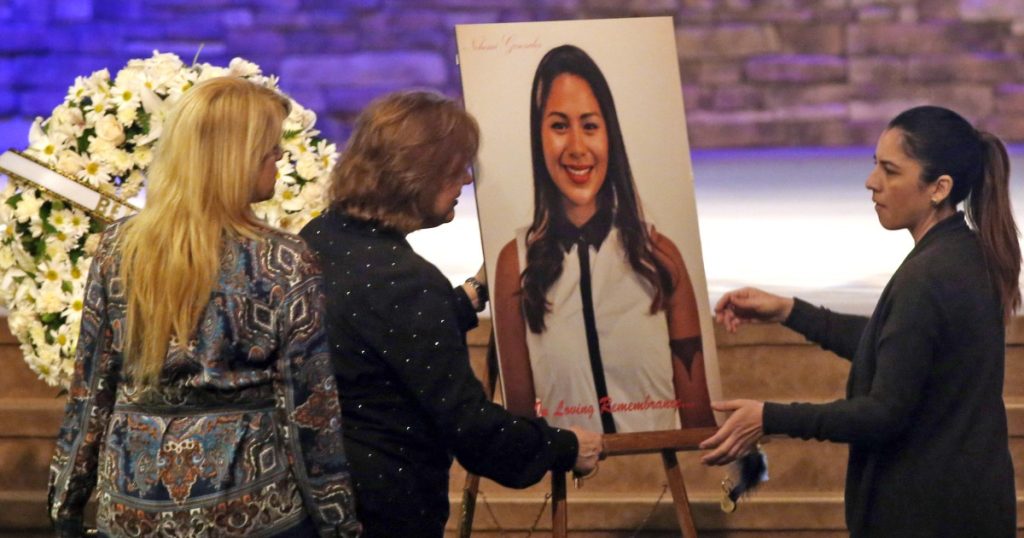
WASHINGTON — The Supreme Court on Tuesday is considering for the first time on the topical question of whether tech companies are always immune from legal liability in disputes arising from problematic content posted by users.
The justices are hearing oral arguments in a case alleging that by recommending videos that spread violent Islamist ideology, YouTube bears some responsibility for the killing of Nohemi Gonzalez, an American college student, in the 2015 Paris attacks carried out by the Islamic State terrorist group.
At issue is whether there are limits to the liability shield for internet companies that Congress enacted in 1996 as part of the Communications Decency Act. The Supreme Court has never addressed the issue before, even as the power and influence of the internet have exploded.
The case, which tech companies warn could upend the internet as it currently operates, concerns whether Section 230 can be applied to situations in which platforms actively recommend content to users using algorithms.
The novel legal issue has given rise to some unusual cross-ideological alliances, with the Biden administration and some high-profile Republican lawmakers, including Sens. Ted Cruz of Texas and Josh Hawley of Missouri, having filed briefs backing at least some of the Gonzalez family’s legal arguments.
Potential reform of Section 230 is one area in which President Joe Biden and some of his most ardent critics are in agreement, although they disagree on why and how it should be done.
Conservatives generally claim that companies are inappropriately censoring content, while liberals say social media companies are spreading dangerous right-wing rhetoric and not doing enough to stop it. Although the Supreme Court has a 6-3 conservative majority, it is not clear how it will approach the issue.

Gonzalez, 23, was studying in France when she was killed while dining at a restaurant during the wave of terrorist attacks carried out by ISIS.
Her family alleges that Google-owned YouTube helped ISIS spread its message. The lawsuit targets YouTube’s use of algorithms to suggest videos for users based on content they have previously viewed. YouTube’s active role goes beyond the kind of conduct Congress intended to protect with Section 230, the family’s lawyers allege.
The family filed the lawsuit in 2016 in federal court in Northern California and hopes to pursue claims that YouTube violated the Anti-Terrorism Act, which allows people to sue individuals or entities who “aid and abet” terrorist acts.
Citing Section 230, a federal judge dismissed the lawsuit. That decision was upheld by the San Francisco-based 9th U.S. Circuit Court of Appeals in a June 2021 decision that also resolved similar cases families of other terrorist attack victims had brought against tech companies.
The Supreme Court’s eventual ruling could have broad ramifications because recommendations are now the norm for online services, not just YouTube. Platforms such as Instagram, TikTok, Facebook and Twitter long ago began to rely on recommendation engines or algorithms to decide what people see most of the time, rather than emphasize chronological feeds.
Tuesday’s argument is the first part of a social media company double-header at the high court. On Wednesday, the justices will hear a related appeal brought by Twitter about whether the company can be held liable under the Anti-Terrorism Act.
The same appeals court that handled the Gonzalez case revived claims brought by relatives of Nawras Alassaf, a Jordanian citizen killed in a terrorist attack in Istanbul in 2017. The family accused Twitter, Google and Facebook of aiding and abetting the spread of militant Islamist ideology, which the companies deny. The question of Section 230 immunity has not yet been addressed in that case.
The Supreme Court has previously declined to take up cases about Section 230. Conservative Justice Clarence Thomas has criticized it, citing tech giants’ market power and influence.
David Ingram contributed.
 Latest Breaking News Online News Portal
Latest Breaking News Online News Portal






